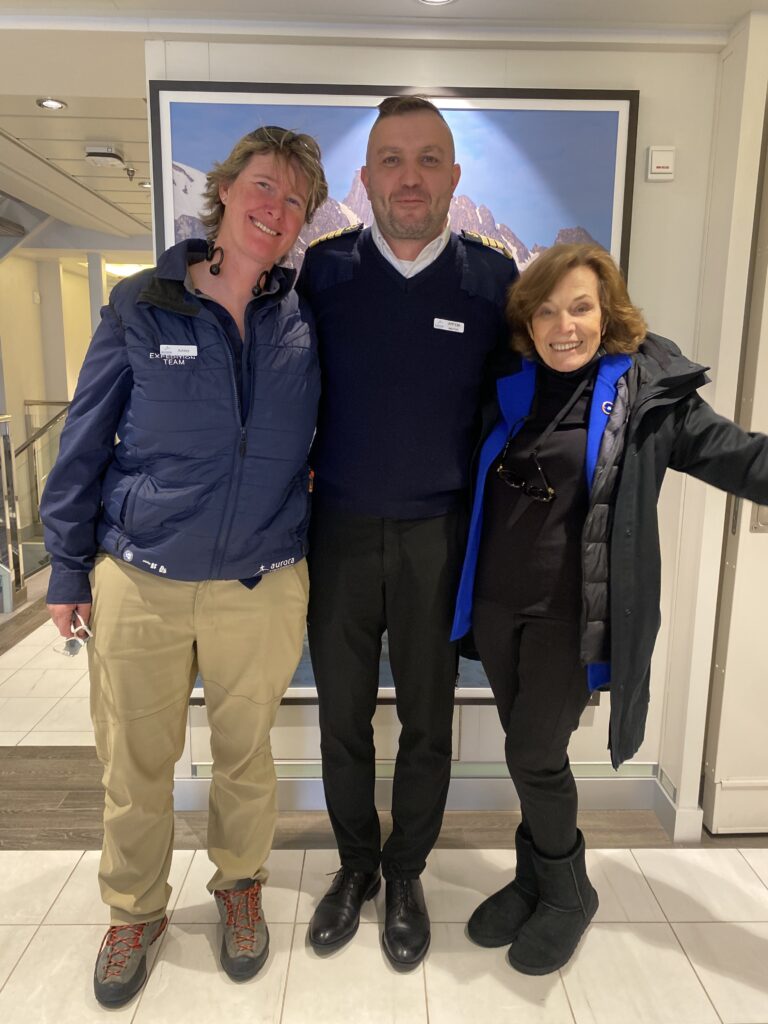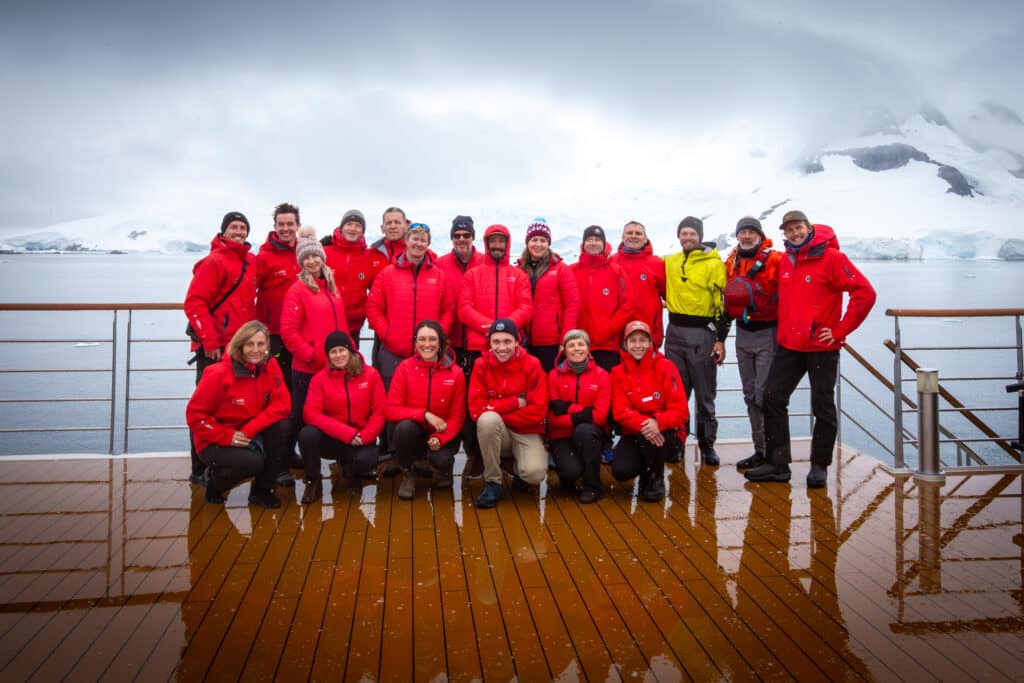Simply put, International Women’s Day is about equality - the equality between all men and women. In a roundabout way, we'll know we've reached this equality when we don't need to have a specific day in the calendar to observe it - when it becomes a normal part of every day, we stop thinking about the distinctions between men and women, and we start being truly equal.
Ashley Perrin
We're taking five with one of the top women in polar adventure, Expedition Leader Ashley Perrin

Ashley Perrin
Expedition Leader
Ashley graduated from the University of Southampton with a dual major with honours in Geography and Oceanography. She’s a fellow of the RGS (Royal Geographical Society) and has over 130,000 miles offshore as a skipper on vessels between 20’ and 185’.
From 2009-2012, Ashley served as a boating officer in Antarctica for the British Antarctic Survey. The first-ever woman appointed to this position, she was in charge of all waterborne activities at Rothera, then King Edward Point, South Georgia. After three years living and working in the Southern Ocean, she became an expedition staff member on vessels sailing to Antarctica, South Georgia and the Falklands. A keen adventurer herself, she has climbed Aconcagua in the Andes, Island Peak in the Himalayas and even spent her honeymoon summiting Mount Kenya.
What exactly does the role of Expedition Leader entail and what does it mean to you?
As an Expedition Leader at Aurora you are tasked with leading and managing the expedition, and its related logistics, operations and team members, including the captain and crew. That means you need to provide passengers with a safe experience that matches their expectations, working with often unpredictable conditions such as ice and weather, and within your permit and regulation parameters. You are actively planning and optimising the schedule taking into account safety, transit distances and providing educational and enriching experiences with regards to wildlife, history and dedicated activity programs like climbing, diving, snorkelling, which Aurora specialises in.
Of course, this is just an overview – there are many more elements and complexities to the role, especially travelling in such remote and extreme environments.
I love to push the envelope on each of Aurora’s expeditions and try to include at least one new site or landing – including for myself, the expedition team or even the captain. As they say on expeditions, our itineraries are flexible and allow for new and unexpected encounters all the time, and plans can change very quickly. Variety is the spice of life!
Personally, I always feel better at the end of a season if I know my team has contributed to citizen science projects and given back towards conserving the important destinations we visit. Creation of Antarctic Ambassadors is always a rewarding experience, and something Aurora is very passionate about. It shows that your team has done a great job of passing on their love of the region to our expeditioners. People protect what they love.
Why did you choose Aurora?
The way the company was founded, with its adventurous spirit and legacy from Greg Mortimer, its commitment to sustainable travel, the small vessel and experiential approach interested me. There also seemed to many exciting initiatives coming including new and ground-breaking ships, and partnerships with incredibly inspiring people like conservationist Dr Sylvia Earle and several other women in conservation.
What do you love most about your job?
It’s hard to say there is a single thing. So I will answer with three. The daily challenges thrown at you by the weather, ice and the other vessels operating in the area. The constant personal learning that occurs. The teamwork involved between the Expedition Leader and the captain and his crew, and the Expedition Leader and the expedition team.
What is your proudest achievement to date?
Planning and leading the only large vessel expedition to Antarctica in the 2020-2021 season at the height of COVID, providing Dr Tom Hart with the ability to collect high data sets and reset his penguin lifelines cameras. Also taking the first ever aerial photos of Eden Rocks and Paulet in Antarctica, for the express purposes of getting a penguin population count.

Ashley Perrin with Captain Artem Kolmykov and Dr Sylvia Earle
Any advice for others wanting to follow in your footsteps?
Learn enough about all aspects of expedition travel and then find strengths in your team that can complement yours, and trust your team members to deliver. You have to know what you know and don’t know, understand your strengths and weaknesses and be honest about them to yourself. Work on your weaknesses and your mechanisms for overcoming them. Passion and curiosity for exploration and discovery are of course also very important, as well as the desire to share your knowledge and help people deepen their connections.

Discover the women who make up 61% of the global Aurora Team

Did you know?
The Sylvia Earle is dedicated to leading women conservationists
Our purpose-built ship the Sylvia Earle, is named after the renowned marine biologist, oceanographer and explorer Dr. Sylvia Earle.
In a world first, each of the vessel’s public decks bear the names of pioneering female conservationists – Dr. Carden Wallace AM, Joanna Ruxton, Sharon Kwok, Bernadette Demientieff, Dr. Asha de Vos and Hanli Prinsloo – along with a deck dedicated to Dr. Earle herself.




